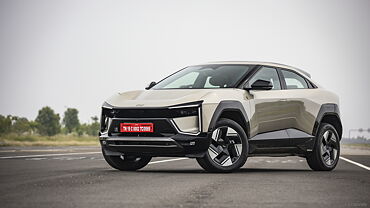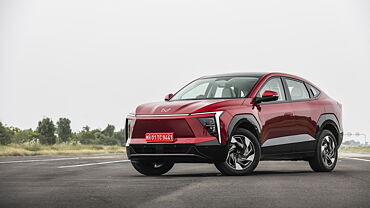
Toyota will be taking over the Geneva stage with a variety of showcars. Joining them at the stage will be a newly-developed powertrain which includes a new continuously variable transmission (CVT), six-speed manual transmission, a 2.0-litre four-cylinder engine, 2.0-litre hybrid system, and 4WD systems, all of which are based on the Toyota New Global Architecture (TNGA).
Toyota claims that the 2.0-litre Dynamic Force petrol engine is the world’s ‘most thermally efficient’ engine till date. The engine has a thermal efficiency of 40 per cent, says Toyota. Meanwhile, the other 2.0-litre Hybrid System (THS II) promises a world-leading fuel economy. This new powertrain will make its debut in the new-generation Auris which will be revealed at the Geneva stage next week.

The new Direct Shift-CVT is an innovative unit developed by the Japanese giant and comes with a launch gear feature. The first of its kind CVT launches the first gear to improve the transmission efficiency at low speeds when compared to the existing CVTs. The fuel efficiency has also been improved by six per cent. On the other hand, the six-speed manual transmission is seven kilograms lighter and is smaller by 24mm. This makes it the smallest transmission in the world thus boosting fuel economy.
Then there will be the two new 4WD systems – Dynamic Torque Vectoring AWD and E-Four 4WD. The former will do its duty in the petrol engine while the latter will be employed in hybrid vehicles. With these new all-wheel-drive layouts, Toyota aims to harmonize engine, transmission, braking, and 4WD systems to offer superb handling and stability regardless of road surface conditions.

This new powertrain hardware will make its way to all the upcoming TNGA platform vehicles starting this year. The new powertrain is important for Toyota’s electric scheme of things. These powertrains aren’t the only ones from the Japanese carmaker. There are almost 17 versions of nine engines, 10 versions of four transmissions and 10 versions of the six hybrid systems planned to arrive before 2023. By that time, the TNGA-based powertrains will be under the skin of 80 per cent of vehicles from Toyota and Lexus. Toyota forecasts that the TNGA-based powertrain units alone will improve fuel efficiency enough to reduce CO2 emissions from the Toyota vehicles by more than 18 per cent.


































